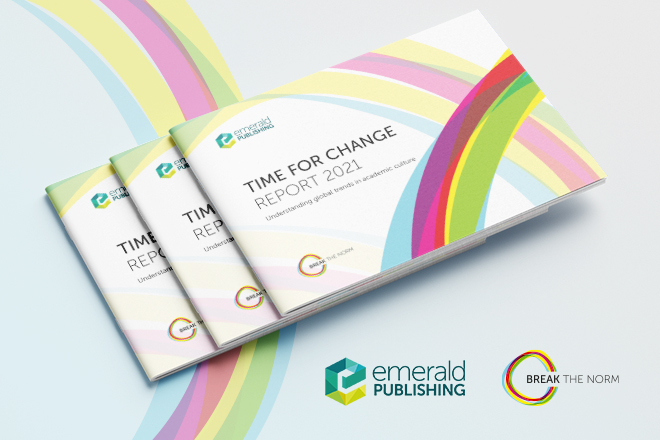Our annual academic culture survey, Time for change, gathers the views and experiences of academics, students and librarians from across the world. It covers topics such as attitudes to research evaluation, academic culture, openness and transparency, content forms and the role of the publisher.
We launched the first Time for change survey in 2019, to highlight the issues in the sector and to further change. Academia’s tie to impact metrics and citations, a trend towards insecure contracts, and a lack of diversity are ongoing challenges. However, we are seeing progress, with funders, institutions and publishers exploring ways to make research culture fairer and more inclusive, and to foster an environment where diverse contributions and outputs are recognised and celebrated.
By reporting academics’ views and lived experiences, we aim to create momentum towards a fairer and more inclusive environment where impactful research can thrive.
On this page
2022 results
The survey was conducted in July 2022, and gathered the views of 1,427 academics and researchers from around the world. Discover more on each of the areas focused on below, and find out how these findings link with World Mental Health Awareness Day

Open research
In 2022, we’re seeing a growing interest in open research, with 46% of academics considering open access and sharing of open data sets, compared to 29% four years ago. Academics in 2022 are placing greater importance on the impact of research in society, with 81% saying it’s important to them personally, up by 6% on 2021.
Research evaluation
In contrast, progress has stalled around research evaluation, with two thirds of academics saying they still rely on citations and impact factors as the dominant metric for research quality. For 47% of academics, the main challenges to changing the way research is assessed include difficulty in tracking research beyond academia and that incentives for career progression are still aligned to traditional metrics.
More results on research evaluation >
Academic culture
Workplace pressures are having an impact on academics, with more than one in 10 having sleep issues and almost a fifth experience physical and mental health issues.
More results on academic culture >
Role of the publisher
More than 60% of academics believe publishers could help improve academic culture by offering different options to publish and over half want more support post publication. 70% of academics think publishers could further change in general by offering more support to underfunded areas of research – up from 64% in 2021.
More results on the role of the publisher >

Previous time for change reports
Our third global academic culture survey gathered views on change during July and August 2021; more than 2,000 academics, librarians and students within Emerald’s literati community participated.

Are you in?
For championing alternatives to traditional academic metrics and rewards? Let’s work together to help the sector break ties with old measures of impact and enjoy a fairer, more equitable environment for research to thrive.
